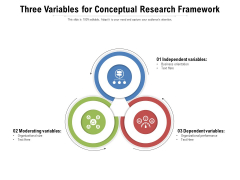
- Conceptual Framework Model Template Professional Practice Begins#
- Conceptual Framework Model Template Download This Feature#
Conceptual Framework Model Template Download This Feature
Download this feature-rich set now With Animated PPT. The fully customizable Conceptual Framework PPT template is the best pick to illustrate the key variables of your research study. You can also use this deck to present that the theoretical framework is dependent on existing studies and theories however, the conceptual framework is based. The three sample displays also illustrate the need for adults to be able to critically reflect on the origin (provenance) and quality of data, and how variables.Accountability, Transparency, and AssessmentDownload our Theoretical and Conceptual Framework PPT template to showcase the difference between both frameworks, describing the significance of each in a detailed and meaningful manner. THEORETICAL FRAMEWORKINPUT PROCESS OUTPUT Profile of the respondents in Questionnaire Self-care ability of terms of: Hemodialysis patients Age with end stage renal Sex disease at Ospital ng Educational attainment Descriptive survey Sampaloc prior to the Position (work) initiation of the Monthly income treatment A basis for Family history.

Conceptual Framework Model Template Professional Practice Begins
the skills in applying this knowledge, and the acquisition of specific knowledge of pedagogical contents and pedagogical practice, Recognition of and response to the changing demands of our multilingual, multicultural communities.In addition to our shared values and commitments, a set of philosophical and pedagogical beliefs drive the design and implementation of our programs and help define our academic culture so that our students become theory-guided practitioners.We believe successful study for professional practice begins with an adequate foundation of knowledge, and then requires Application and expansion of theory and knowledge to meet all students' and clients' educational and counseling needs and
Managerial skills are important and necessary, but they are not sufficient.Education learning leaders are individuals who have vision, who understand learners and their communities, who are knowledgeable about modern theories and practices of effective instruction derived from research, and who can apply their knowledge and skills to improve students' learning.The programs in educational administration and supervision strive to develop the knowledge, skills, and dispositions essential for individuals to become effective school learning leaders. It is the practitioner who can identify questions in need of investigation and it is the researcher who can evaluate whether answers to those questions apply beyond a narrow range.Given the difficulties of leading schools today and the numerous calls for school reform, the belief that "administration is management" is inadequate. Collaboration to develop and apply best practice is key, as it is fundamental that practitioners and scientists need each other to advance theory and practice.While the scientist may design research and utilize experimental and statistical methods to test hypotheses, the practitioner must validate those hypotheses in real settings. Our graduates apply best practice in the design, development, delivery, and evaluation of inclusive instruction for all students.Best practice is derived from study and reflection, inquiry, and research that springs from collaboration among and between researchers and practitioners.The psychology programs are based on the "scientist-practitioner" model of professional preparation. But, the essence of the framework and knowledge bases remains.Best practice must be informed by research, applied in the context of the modern, complex, dynamic, multicultural educational world in which we now live, and demonstrate the values and dispositions which support the growth of the whole person - intellectually, morally, and professionally.The Reflective and Inclusive Educator and ProfessionalThe initial and advanced teacher education programs are based on reflective practice.
individual and group differences in human behavior, personal excellence, to the expansion of knowledge, andEstablishing the satisfactory completion of a liberal arts and sciences background as a prerequisite to professional study is one example of how this belief is operationalized across our programs.Preparation for professional life as teachers, counselors, psychologists, administrators, and other educators must include a firm grounding in current research, theory, and best practices related to the areas of professional study.Our program and course designs ensure that students are exposed to theory and current best practice models before they engage in student teaching, internships, practica, or other field experiences.The knowledge we have identified as essential to the development of school personnel include broad and general knowledge about excellence and reflection and our commitment to intellectual endeavor in the Jesuit tradition,
working effectively with professional colleagues, parents, and other stakeholders in the educational (or administrative, supervisory, counseling, or therapeutic) process, adapting instruction to students with different needs, The reflective process also assists in the development of ethical practice and deepening of personal professional perspectives.The skills we have identified as essential to the development of school personnel also include applications of the knowledge bases described above in such areas as It also relates to our commitment to use our disciplines, knowledge, and methods to meet all students' and clients' needs.Our programs, through courses and field experiences, are designed to develop the necessary skills and tools and to provide structured experiences for their application through such activities as large and small-group instruction, discussion, journal- or log-keeping, integrative seminars, pre-practica experiences, role-playing, modeling, simulations, research, problem-solving projects, reflective essays, etc. educational and psychological research, andAdditional knowledge specific our programs in reading and literacy, special education, bilingual education, counseling, school psychology, and school leadership is reflected in the individual program curricula.Professional preparation should include theoretical instruction as well as practical opportunities to develop the skills, tools, understandings, and dispositions that lead to habits of reflection, analysis, and improvement.This belief flows from our valuing of excellence, reflection, leadership, theory- and research-based practice.


 0 kommentar(er)
0 kommentar(er)
